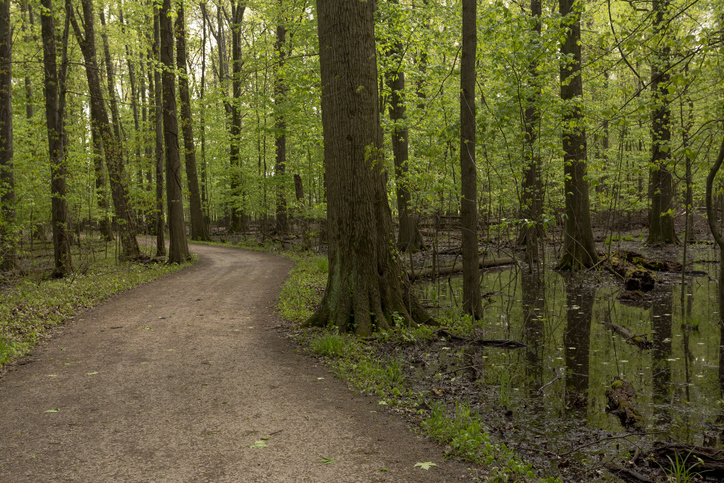Have Your Park and Eat it, Too
April 27, 2015
Public space is precious. Its worth can be measured by the dollar value of its acres, the composition of its soil or by its proximity to human communities.
Our planet has been divided and subdivided, incorporated and extracted. Public space is precious because it is our last hope in the defense of equity. Magical is the notion that we might reserve economically viable locales for the purpose of inviting communities to recreate.
The most predominant form of public space in Providence is our network of public parks. What they continue to offer residents of the city is extraordinary.
For years, Providence parks have been bastions of recreation and childhood exploration. They are frequented by people of all sorts. They are known for their playgrounds and fields, rivers and glens. They are also known by their abundance — we have 100 neighborhood parks as well as 12 down city and, of course, Roger Williams Park our mainstay and crown jewel.
Parks are often tended to by friends groups who lead cleanups and events to activate parks throughout the year. The children of Providence engage in PlayCorps programing during the summer to help them rediscover physical play in a social environment.
And while maintaining public spaces for recreation is a noble task in and of itself — and one which serves an important educational and health-care purpose — the folks who look after our parks are looking to expand their function. After all, if the only thing we can do in a park is play, does the park truly serve everyone?
Gone are the days when a person could simply subsist off of the land — our common genesis and sustenance. For better or for worse, the culture of industrialization steers us away from simplicity. A systemic consequence of this is hunger without employment, a problem which has been inadequately addressed by governmental nutrition programs and farm subsidies.
The question is this: Could Providence Parks play a key role in a better solution?
Roby Neuton certainly thinks so. As a steward to Joslin Park & Orchard, she cites the city’s critical unemployment and the expense of transcontinental food distribution as the impetus for planting fruit bearing trees for public benefit.
In a recent conversation, she provided some context, “You hear the stories from the old-timers, ‘Ya used to be able to walk anywhere and grab a snack in this neighborhood, everybody had fruit trees.’ Even I remember twenty years ago baking pies from apples I picked throughout the city. Where did all these fruit trees go?”
She admits that a major concern with fruit bearing trees is the mess they can create, but asserts that with a little maintenance and support these projects can blossom.
Much of that support comes from city forester Doug Still, who worked with a grant from the Partnership for Providence Parks to start the Friends Orchard at Joslin Park.
Still has a vision to expand this success throughout the city and hopes to create an “urban orchard necklace” that could be maintained by citizen fruit tree caregivers. In some parks, he has already directed the cultivation of pear, cherry and walnut trees.
And since, as we have discussed, our public space is so precious, perhaps the solutions for maximizing the capacity of our public orchards is closer than we might think. Revive the Roots is a local nonprofit that seeks to “create ecologically regenerative and dynamic social spaces through the education and practice of permaculture.”
Permaculture is essentially a form of agriculture that is designed so as to be self-sufficient. It appears that there’s expertise in our own backyard about creating edibles that maintain themselves. Imagine the convenience of a park that came into season without a fuss?
Earth Day is just behind us, so now is an opportune time for all of us to broaden our definition of what makes a good park. If parks are truly our last public spaces, we have the obligation to maximize their potential and implement programs that make them accessible and functional for all who dwell in the city.
Providence College student Matthew Henry Smith is interning for the Partnership for Providence Parks.
Categories
Join the Discussion
View CommentsRecent Comments
Leave a Reply
Your support keeps our reporters on the environmental beat.
Reader support is at the core of our nonprofit news model. Together, we can keep the environment in the headlines.
We use cookies to improve your experience and deliver personalized content. View Cookie Settings




An excellent story, full of great ideas! Well done, Matthew!
This is an interesting story. It is heartening to hear about community- minded ideas for our precious and ever-diminishing public space. However, no agriculture, not even permaculture, is "self-sufficent". Producing food requires our input, unless we are hunter-gatherers in an undisturbed ecosystem. But a focused community effort could produce food for neighbors. That would be a great thing!
Matthew – I agree that it would be great to have more fruit and nut trees and berry bushes growing everywhere, including public park land. There actually is an excellent example of this locally that you didn’t mention: the Edible Forest Garden at Roger Williams Park. Here’s a link to more info in case you/others are interested: http://digitalcommons.uri.edu/cgi/viewcontent.cgi?article=1280&context=srhonorsprog
I once stood picking apples from a really productive, streetside apple tree outside the CVS at URI when a student stopped and asked me what else you needed to do to them to be able to eat them. I wanted to say, "coat them in wax and fly them round trip to Chile" but I didn’t. I did tell the Nutrition and Food Sciences professor in the office next to mine that she’s got her work cut out for her. The next spring they cut the tree down because it obscured the view of the stores… . We all have our work cut out for us.